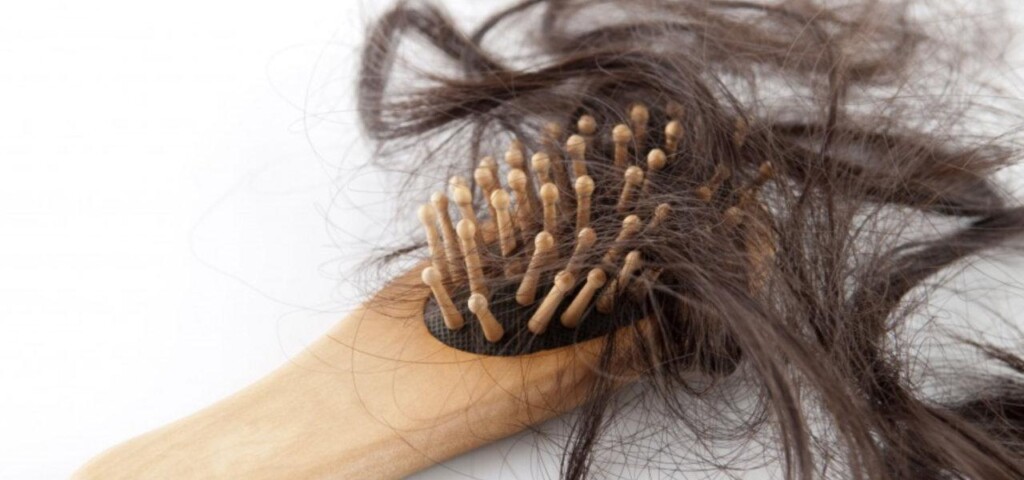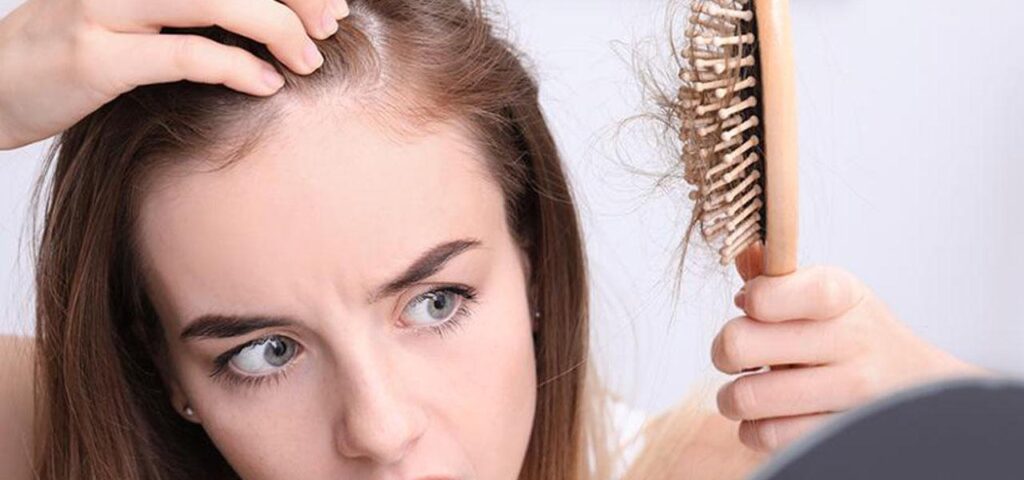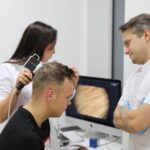Hair loss after anesthesia is quite a common phenomenon that can cause concern among people who experience it. Although it is not always a serious issue, it is worth understanding why it may occur. While the administration of anesthesia is a procedure that should not cause negative health effects, it can have various side effects, and one of them is hair loss. Anesthesia may therefore, in some individuals, worsen their self-esteem due to changes in appearance and hair loss.
Anesthesia and hair loss – what is the connection?
Many people wonder whether anesthesia and hair loss may be related. Although this relationship is not fully understood and may vary depending on individual factors, there are several potential mechanisms that explain why anesthesia may lead to hair loss. These include:
- stress – the process of anesthesia and surgery itself can be a huge stressor for the body. High cortisol levels may disrupt hormonal balance and the hair growth cycle, leading to hair shedding,
- hormonal fluctuations – anesthesia can affect hormone levels in the body. These changes, in turn, impact the hair growth cycle, weakening follicles and accelerating hair loss,
- metabolic changes – anesthesia may influence the body’s metabolic processes. These disruptions negatively affect hair health, leading to weakening and shedding,
- environmental factors – operating room conditions, such as temperature and humidity, may affect hair condition. High temperature or low humidity, for example, can dry out hair and weaken its structure,
- drugs administered during anesthesia – some drugs used during anesthesia may have side effects, including an impact on hair health. For example, certain substances may disrupt the hair growth cycle or weaken the hair.
Dr. Piotr Turkowski, trichologist and hair transplant specialist, says: “Although hair loss after anesthesia is not a common problem, it is worth paying attention to factors such as stress and hormonal changes that may affect hair health.”

What does the administration of anesthesia involve?
The administration of anesthesia involves the use of special pharmacological agents to induce a state of unconsciousness, pain relief, and muscle relaxation. This medical procedure is used to ensure the patient’s safety and comfort during various medical procedures, such as surgical operations or advanced diagnostic tests. The process of anesthesia consists of several stages:
- patient preparation – before administering anesthesia, the patient is evaluated by an anesthesiologist to determine the appropriate dose and type of anesthesia. The specialist considers the patient’s health, possible drug allergies, and the type of planned procedure,
- administration of anesthetic drugs – anesthesia may be administered using different agents depending on the type of procedure and the anesthesiologist’s preferences. General and local anesthesia are the most common. General anesthesia involves the administration of drugs that cause rapid sleep and loss of consciousness, while local anesthesia limits the effect of anesthetics to a specific area of the body, allowing the patient to remain conscious,
- monitoring the patient’s condition – throughout the procedure, the patient is continuously monitored by the anesthesiologist and medical staff. Parameters such as blood pressure, heart rate, oxygen saturation, and cardiac activity are checked. This allows for quick detection of complications and immediate intervention,
- maintenance of anesthesia – in the case of longer procedures, additional doses of anesthesia may be required to prolong unconsciousness,
- regaining consciousness – after the procedure, anesthetic drugs are gradually withdrawn, allowing the patient to return to consciousness. This process can be controlled to avoid side effects such as nausea or disorientation.

How to prevent hair loss after anesthesia?
Preventing hair loss after anesthesia can be challenging, as it is not always possible to control all the factors involved. However, there are several ways to help reduce the risk of hair loss after anesthesia, such as:
- healthy lifestyle – regular physical activity, a nutritious diet, and stress management help maintain healthy hair. It is important to get enough sleep and avoid harmful habits such as smoking and excessive alcohol consumption,
- balanced diet – make sure your diet contains adequate amounts of protein, vitamins, and minerals essential for healthy hair. Nutrients such as vitamins A, B, C, D, E, biotin, zinc, iron, and omega-3 fatty acids are particularly important for hair health,
- stress management – stress can negatively affect hair health, so it is worth practicing relaxation techniques such as yoga and meditation to reduce its effects,
- proper hair care – it is recommended to use gentle shampoos and conditioners that do not irritate the scalp or weaken hair. Avoid excessive heat styling such as blow-drying and curling,
- consulting a doctor – for patients scheduled for surgery requiring anesthesia, it is advisable to discuss hair loss concerns with the anesthesiologist. The doctor may recommend additional precautions or provide post-procedure hair care advice,
- supplementation – in cases of vitamin and mineral deficiencies that may affect hair health, supplementation may be considered under medical supervision,
- regular check-ups – if a patient notices excessive hair loss after anesthesia, it is worth consulting a doctor. Other health issues may also be contributing to hair problems and require specialist evaluation and treatment.
An additional measure to support hair health after surgery is the use of tablets for hair loss after anesthesia. These include vitamin and mineral supplements. Regular intake may help strengthen the hair structure and reduce shedding. There are also tablets containing active ingredients such as minoxidil or finasteride. These are proven substances in the treatment of hair loss for certain groups of patients. Their use should always be under medical supervision, as they may cause side effects.
Some herbal supplements, such as nettle extract, ginseng, or turmeric, are used in traditional medicine as remedies supporting hair health. Collagen is also an essential building block of skin, hair, and nails.
It is important to remember that each person has different needs and reactions to supplements. Before starting supplementation with tablets for hair loss after anesthesia, it is always advisable to consult a doctor, who will recommend the appropriate therapy based on the patient’s individual needs and health condition. Additionally, supplementation should be treated as a complement to proper diet and hair care, not as a substitute. Only then can satisfying, lasting results be achieved.
Finding the cause of hair loss after anesthesia is crucial for successful therapy and prevention of this problem. At OT.CO Clinic, we take a comprehensive approach to every procedure. This is why we conduct consultations early to assess the patient’s health and introduce specific preventive measures. Our staff approach each case individually. With modern tools and techniques, we are able to address any degree of hair loss – not only after anesthesia! We encourage you to explore all the services we provide as a team of experienced specialists.

